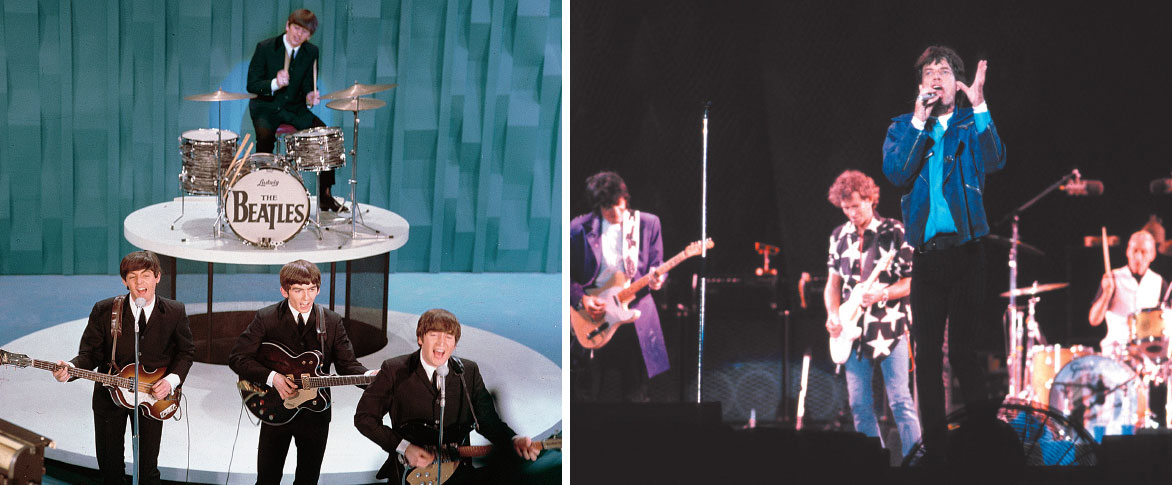The British Are Coming!
Rock recordings today remain among America’s largest economic exports, bringing in billions of dollars a year from abroad. In cultural terms, the global trade of rock and roll is even more evident in the exchanges and melding of rhythms, beats, vocal styles, and musical instruments. The origin of rock’s global impact can be traced to England in the late 1950s, when the young Rolling Stones listened to the blues of Robert Johnson and Muddy Waters, and the young Beatles tried to imitate Chuck Berry and Little Richard.

Until 1964, rock-and-roll recordings had traveled on a one-way ticket to Europe. Even though American artists regularly reached the top of the charts overseas, no British performers had yet appeared on any Top 10 pop lists in the States. This changed almost overnight. In 1964, the Beatles invaded America with their mop haircuts and pop reinterpretations of American blues and rock and roll. Within the next few years, more British bands as diverse as the Kinks, the Rolling Stones, the Zombies, the Animals, Herman’s Hermits, the Who, the Yardbirds, Them, and the Troggs had hit the American Top 40 charts.
With the British invasion, “rock and roll” unofficially became “rock,” sending popular music and the industry in two directions. On the one hand, the Rolling Stones would influence generations of musicians emphasizing gritty, chord-driven, high-volume rock, including bands in the glam rock, hard rock, punk, heavy metal, and grunge genres. On the other hand, the Beatles would influence countless artists interested in a more accessible, melodic, and softer sound, in genres such as pop-rock, power-pop, new wave, and alternative rock. In the end, the British invasion verified what Chuck Berry and Little Richard had already demonstrated—that rock-and-roll performers could write and produce popular songs as well as Tin Pan Alley had. The success of British groups helped change an industry arrangement in which most pop music was produced by songwriting teams hired by major labels and matched with selected performers. Even more important, the British invasion showed the recording industry how older American musical forms, especially blues and R&B, could be repackaged as rock and exported around the world.